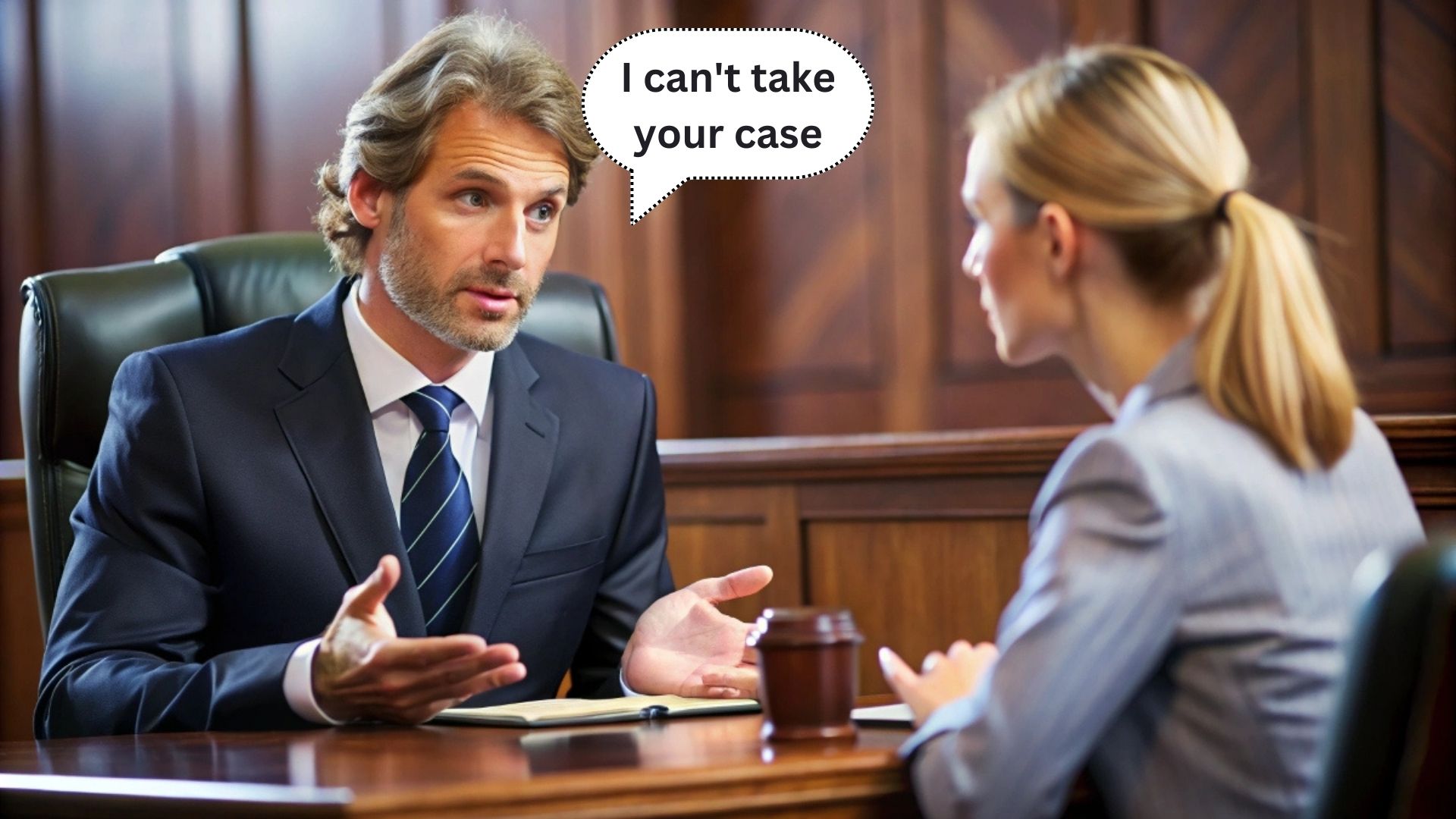1. Confusing Case
Some cases can be easily explained:
They shipped a defective product, sold a business and overestimated income, failed to pay the monies due, but not company A arranged for a secured transaction with company B owned by Smith who hired Jones, we spoke to Jones who said company C would arrange with D, to speak with Gordon who was supposed to forward the supplemental documents promised, etc.
If the lawyer has to spend 20-30 hours sorting the case out, who is to pay for that.
2. Documents do not accord with promises
A strong case is outlined in a call but the documents do not show what was promised. Credibility is key and do not promise more than what you can deliver. The contingency agreement is a risk-shifting device; in a standard hourly agreement, the lawyer is paid regardless of the result, while the contingency agreement has the lawyer assume the risk of new facts or evidence, unaccepted testimony, defendant goes out of business, or other events.
To assess the case, the lawyer must be either sufficiently familiar with the particular type of claim to assess it, or have confidence in the information provided. Once that material becomes suspect, contingency representation becomes questionable.
3. Mistaken Predictions of Settlement
The defendant will quickly settle the case prospective clients sometimes say, but the reality is usually different. When clients look for lawyers, they seek the toughest, nastiest one who will have the claim dismissed, not one who will agree with the plaintiff and suggest capitulation. When the lawyer takes the case, he finds 2 years of nasty litigation. Credibility is key, do not make predictions that you are not reasonably confident are true.
If another lawyer rejected your claim, acknowledge that, do not say that he said this was a strong claim because his actions suggest otherwise. Again, because he is assuming a large amount of risk, the contingency lawyer wants to have an accurate understanding of the claims, its strong and weak points, and the client’s expectations.

WE WELCOME THE OPPORTUNITY TO DISCUSS YOUR CONTINGENCY CASE
Call (973) 598-1980 for a free consultation







Leave a Reply
You must be logged in to post a comment.